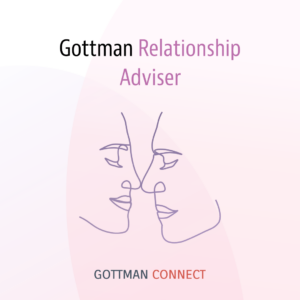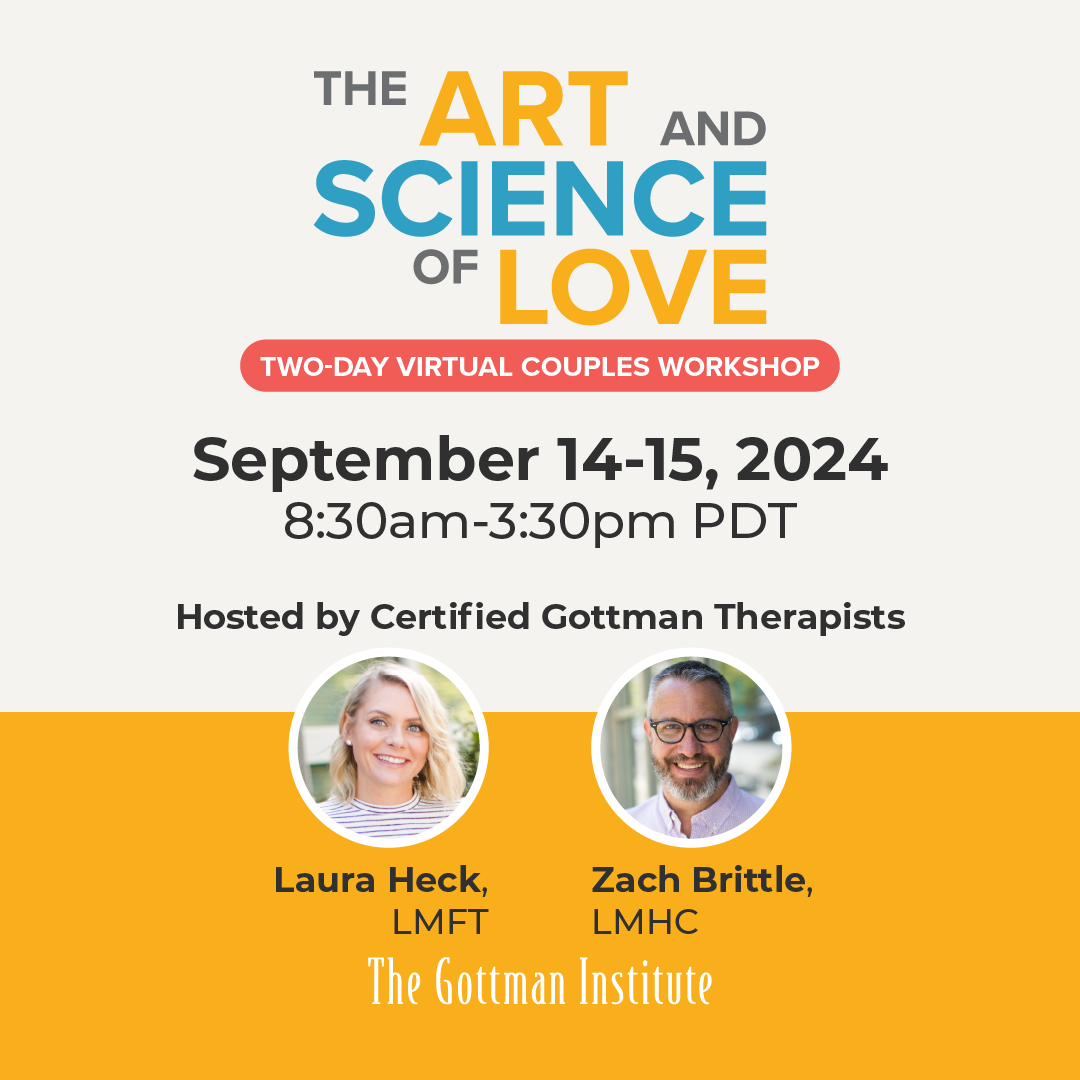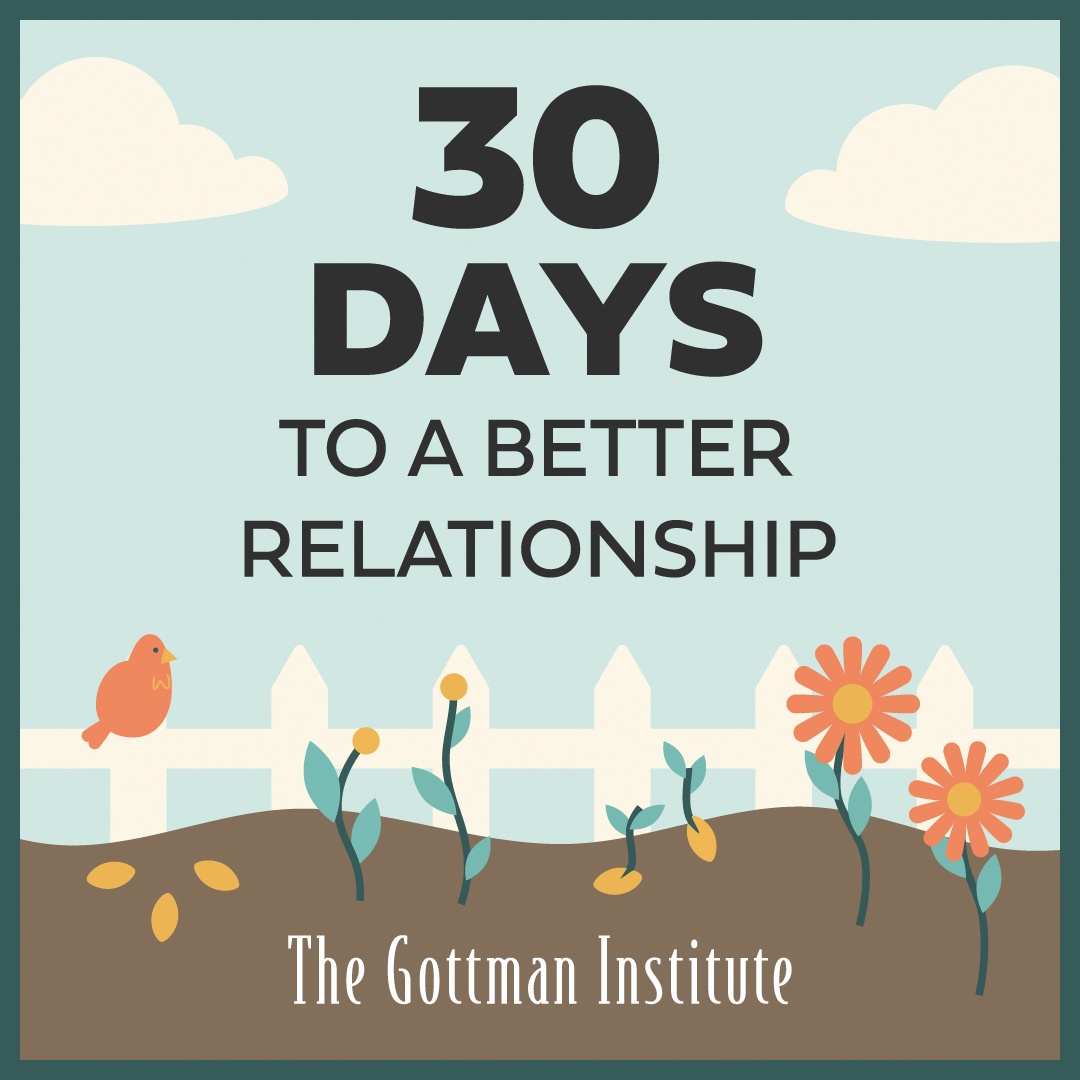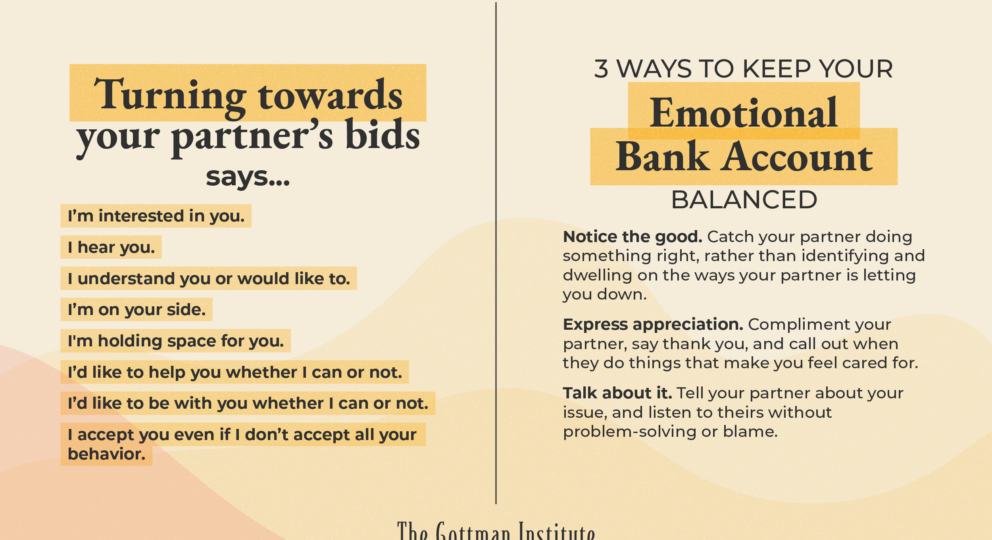Getting to know someone you really like is wonderful. You feel as if you could conquer the world. You stay up all night getting to know the other person and daydream about when you might see them again. And there is a good reason for this.
We are designed to bond with other humans. When we date, oxytocin is released into our brains. This helps us to bond. Dopamine releases to make us feel happy and elated when in the presence of our person.
Because of this, you aren’t necessarily seeing clearly. You tend to minimize the bad and maximize the good. When you pick up on something that doesn’t feel right or a characteristic you don’t like, you might justify it or explain it away. This is why it’s difficult to recognize red flags at the beginning of your relationship. Your body kind of doesn’t want you to.
Luckily, The Gottman Institute has done a lot of research on what makes certain couples the “masters” and other couples the “disasters” of relationships. I believe you can use this research as early as the first date to start paying attention to whether or not you want to continue with the other person.
Red Flags
So what makes a couple a “disaster”? One of the biggest predictors of that is the utilization of something Dr. John Gottman dubbed “The Four Horsemen,” which is a play on the “Four Horsemen of the Apocalypse” coming to signal the end of times.
The Four Horsemen are:
- Criticism – Describing character flaws within your partner
- Defensiveness – Not taking responsibility for your part
- Contempt – Belittling and taking a superior position
- Stonewalling – Shutting out your partner/ shutting down
You can start to notice whether or not these are appearing in your relationship even in the early stages. What might this look like?
Criticism
If someone that you are dating frequently criticizes you or other people, you might notice them saying words like “always” or “never.” For example, “you are always so late” or “you never think about me at night!”
Defensiveness
Defensiveness looks like counter-criticizing, over-explaining, justifying actions, or playing the victim. If you are dating and bring up a concern that you have and the other person responds defensively, that might be something to look out for. It could look like them saying, “I know I keep showing up late but I have a really busy job. Why don’t you get that?”
Stonewalling
Stonewalling is often the result of physiological overwhelm. This means the person that is stonewalling likely has a racing heart and a flood of stress hormones. If you’re with someone who is stonewalling, it will seem as if the other person zoned out or couldn’t care less about what you’re saying. You might experience this during an initial conflict. Perhaps the other person goes “offline” and becomes unresponsive.
Contempt
This one is VERY important to look at for. Contemptuous is the most harmful of the horsemen. Contempt appears when someone takes on a position of superiority. It might sound like put-downs or mean-spirited sarcasm. Other examples of contempt are laughing at you (not with you!), putting down your interests or profession, or taking on a position of being better than you in some capacity. If someone shows contempt in the early stages of dating, this is a big red flag.
Okay, so now that we’ve looked at what you need to avoid, let’s look at what you want to look for!
Green Flags
Luckily, Dr. Gottman didn’t stop with studying the disasters of relationships. He also wanted to know what it was the masters did differently. In the research, he found the antidotes to the Four Horsemen, which are counteractive behaviors for each of the above.
When you are getting to know someone, look for these. It’s a good sign they can manage conflict and show you respect, even when you differ.
Gentle Startup
Rather than becoming critical, the masters of relationships discuss their concerns and complaints by starting the conversation gently. They also tend to follow a formula of “I noticed X, I feel X, I need X” when discussing what is bothering them, rather than accusatory “You always do X, you need to do X, why don’t you…“
Responsibility taking
Instead of defensiveness, you want to take appropriate responsibility for your part. This means that you own even the smallest piece of the problem when it exists. People who take responsibility hear their partner out when they have a concern, validate the concern, and take pause before responding. This can sound like one partner saying, “Hey, I’ve noticed that when we go out with your friends, I am left alone in the corner. I feel really awkward in those moments. I need you to stay by my side a little more until I get to know them” (a gentle start-up). In turn, the other person responds non-defensively by saying, “You’re right. I shouldn’t walk away from you like that. I can imagine it’s uncomfortable when you don’t know everyone yet.”
Self-soothing
We all get upset. It’s human to have overwhelming emotions from time to time. However, those that fair well in relationships tend to take responsibility for soothing themselves and they have partners who are willing to allow them to take the time they need to self-soothe. This means that when someone needs a break, they take it and the other person gives them space.
Contempt
To overcome contempt, the person expressing it needs to lean into recognizing and expressing their own feelings. They likely also need to explore their past experiences that are leading them to feel anger and hostility toward their partner. Instead of showing contempt and saying “I can’t believe you are late. You disgust me,” a partner who can appropriately express themselves might say, “When you are late, I feel so angry.”
Moral of the story
The beginning of the relationship is full of happy hormones that want you to bond (and mate) with your new beau. Learning to recognize the signs of a healthy partner can help you to override some of those hormones and see a bit more clearly. Look out for people who are critical, defensive, withdrawn, or contemptuous. The use of these behaviors doesn’t mean that you shouldn’t be in a relationship with them, but it does mean you need to get curious about how they respond when you set boundaries around those behaviors.
Ultimately, we want partners who are gentle with us (even when they are upset), able to take responsibility for their actions (even when it’s hard), work with us to soothe our nervous systems, and own their past pain and resentment so that they don’t inflict it upon us.
More than 1 million monthly readers look to The Gottman Relationship Blog for proven advice from mental health professionals to build happy and lasting relationships. Subscribe below to receive our blog articles in your inbox every week.













